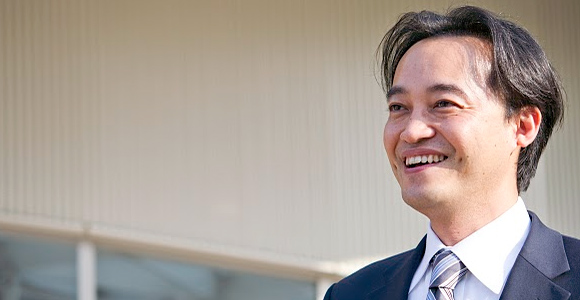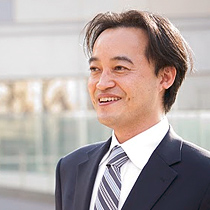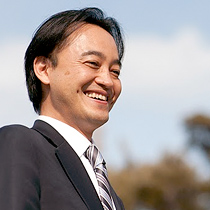Seiko Shirasaka

A wonderful place where treasures abound
Associate Professor Seiko Shirasaka
Formerly of Mitsubishi Electric Corp. Areas of expertise: Sytems engineering, space systems engineering, systems assurance/functional safety. Awarded numerous prizes for role played in the interdisciplinary "Konotori" (HTV: H-II Transfer Vehicle) development project, for which his responsibilities included the overall system integration, avionics architecture design, and system safety design.
History and motivation to joining SDM
One of the things I felt keenly while I was working in space development at Mitsubishi Electric was the importance of "knowing things." Obviously, there is a difference between knowledge and the ability to practically apply it, but if you lack knowledge it will be difficult to even imagine what could be done. When I was involved in the development of "Konotori" (HTV), I knew nothing of the concepts of systems engineering, and that was a bitter experience that eventually led to me teaching the subject. I joined SDM because I wanted to use my 15 years of experience in development as a basis for teaching the essential concepts of systems engineering with the standard terminology that the discipline employs.
At SDM, my primary responsibility is for the required subjects, what we refer to as the "core subjects." Core subjects provide the basis for the other subjects and research at SDM, and we take care to ensure that students fully understand these basic concepts by spending time learning, demonstrating and practicing them.
Systems development methodology
 At SDM, I research systems development methodology. There are two different kinds of methodology; general research that does not depend upon the specific field of application, and specific research that tailors findings to a certain area of inquiry. My background is in space systems, and one of my projects is to develop ultra-miniature satellites in collaboration with the University of Tokyo and other outside universities. Ultra-miniature satellites weight no more than 50 kg, and the goal of this project is to encourage their use by achieving double-digit cost savings over normal satellites. My main responsibility is the development methodology for the system. What I hope to achieve is a more "Japanese" methodology that is better suited to Japanese culture, in contrast to the European and North American methodologies used in larger-scale development.
At SDM, I research systems development methodology. There are two different kinds of methodology; general research that does not depend upon the specific field of application, and specific research that tailors findings to a certain area of inquiry. My background is in space systems, and one of my projects is to develop ultra-miniature satellites in collaboration with the University of Tokyo and other outside universities. Ultra-miniature satellites weight no more than 50 kg, and the goal of this project is to encourage their use by achieving double-digit cost savings over normal satellites. My main responsibility is the development methodology for the system. What I hope to achieve is a more "Japanese" methodology that is better suited to Japanese culture, in contrast to the European and North American methodologies used in larger-scale development.
I do this work in collaboration with other faculty membersbecause the methodology itself can be applied to systems in many other fields. I also work with Professor Maeno in investigating the development of systems that focus on "people" rather than "things."
In the "Konotori" project, I was responsible for designing system safety, which is another research area that I focus on. One specific topic that I am interested in is how to apply the international standard of functional safety to smart grids.
SDM's role in society
SDM seeks to investigate and teach methodologies that treat all systems uniformly, not just technology systems, but political, legal, social, and environmental systems too. I think that humanity, if it is to continue to be sustainable, will need leaders who understand these concepts, who are able to articulate grand visions and work with experts in specific fields to achieve them. SDM needs to create broad, holistic concepts for handling systems ("SDM studies"), and to turn out a continuous stream of people who are educated in them.
A wonderful place where treasures abound
 The kind of students I would like to see are those who have a field in which they are very confident, but they are not satisfied with that and continually seek to go beyond their current capabilities. SDM is a wonderful place, and there are treasures all around you. Still, treasures do not come easy; you must make the effort. SDM is a place where your efforts are indeed rewarded with treasure. I'm confident that people who are willing to work for the betterment of themselves and their communities will be rewarded many times over.
The kind of students I would like to see are those who have a field in which they are very confident, but they are not satisfied with that and continually seek to go beyond their current capabilities. SDM is a wonderful place, and there are treasures all around you. Still, treasures do not come easy; you must make the effort. SDM is a place where your efforts are indeed rewarded with treasure. I'm confident that people who are willing to work for the betterment of themselves and their communities will be rewarded many times over.

